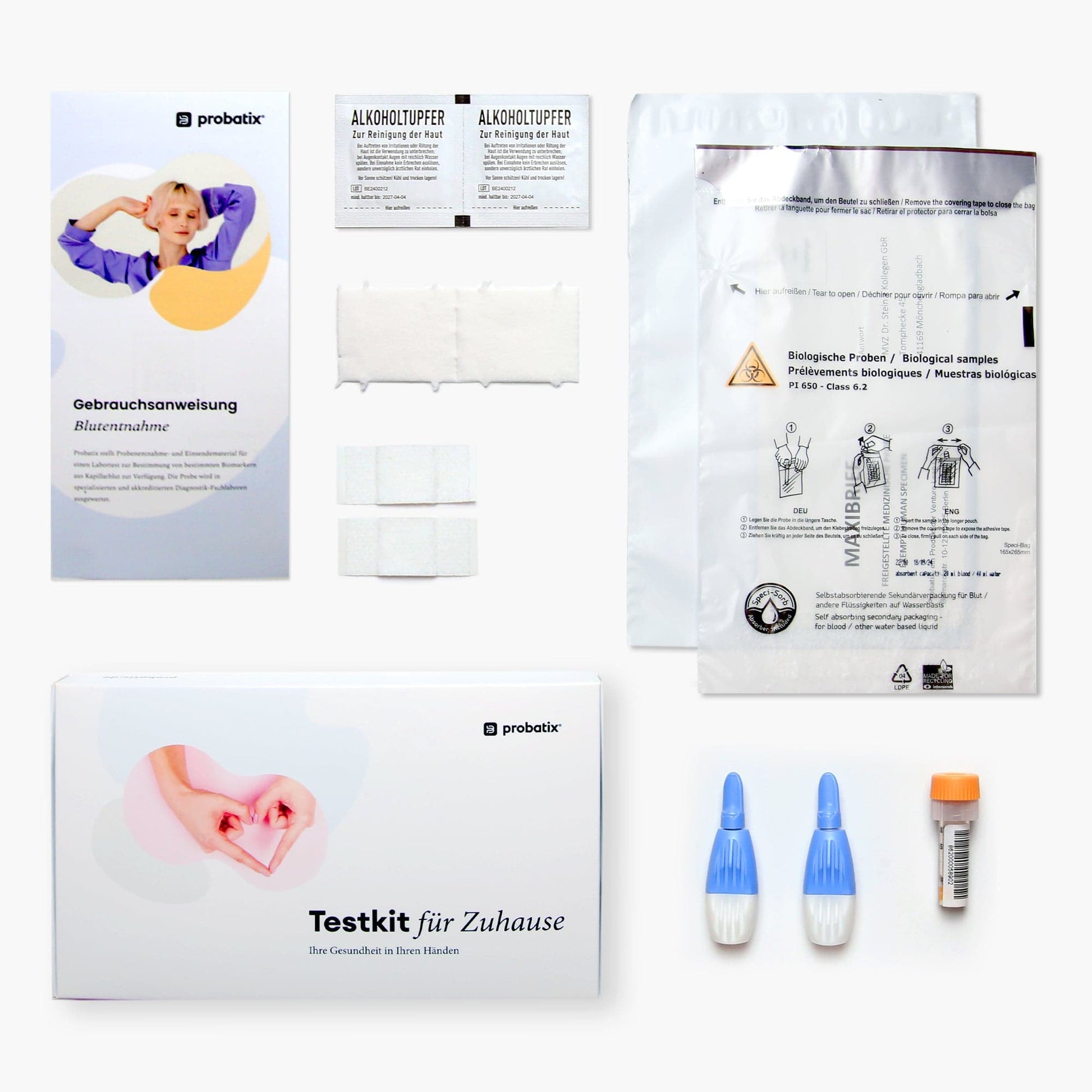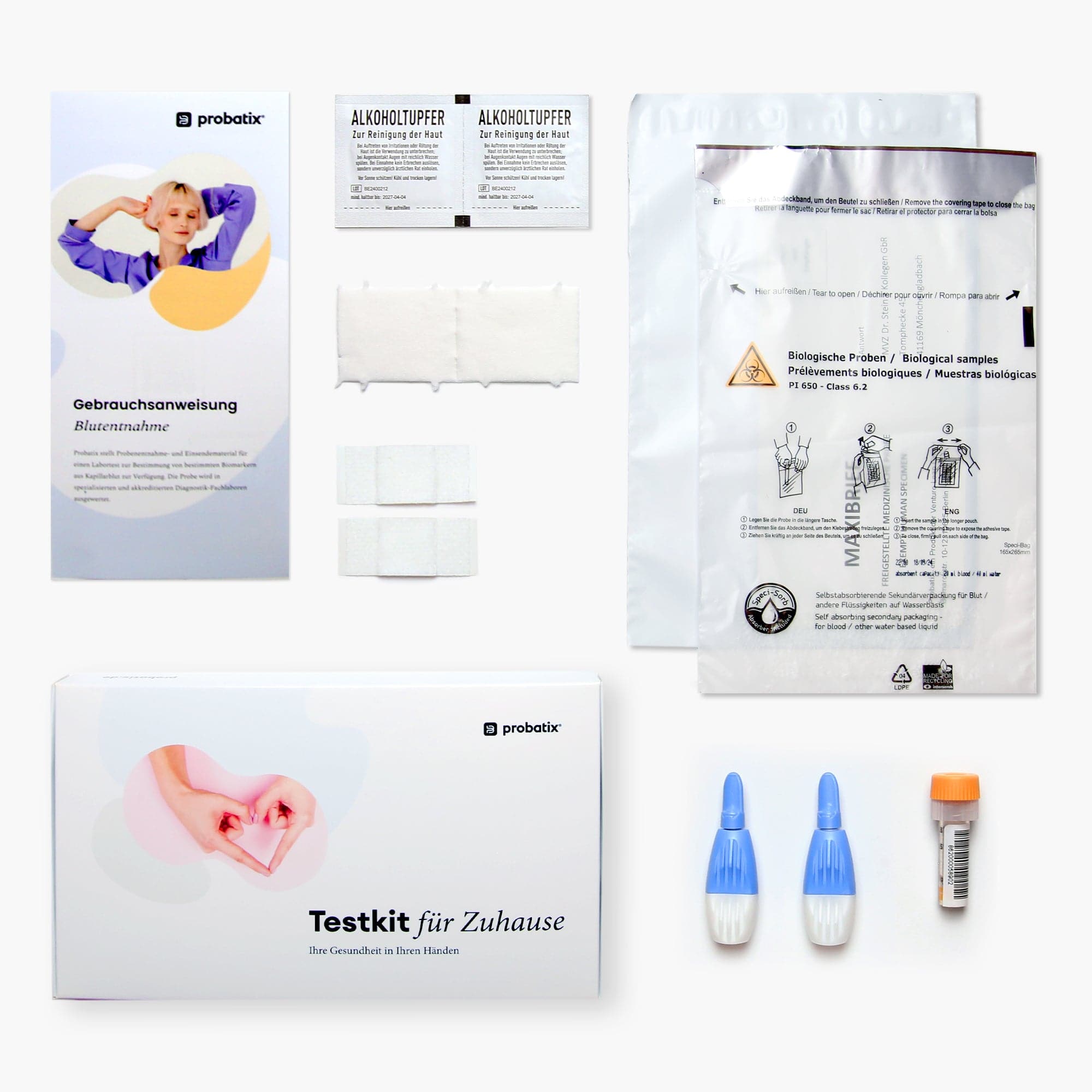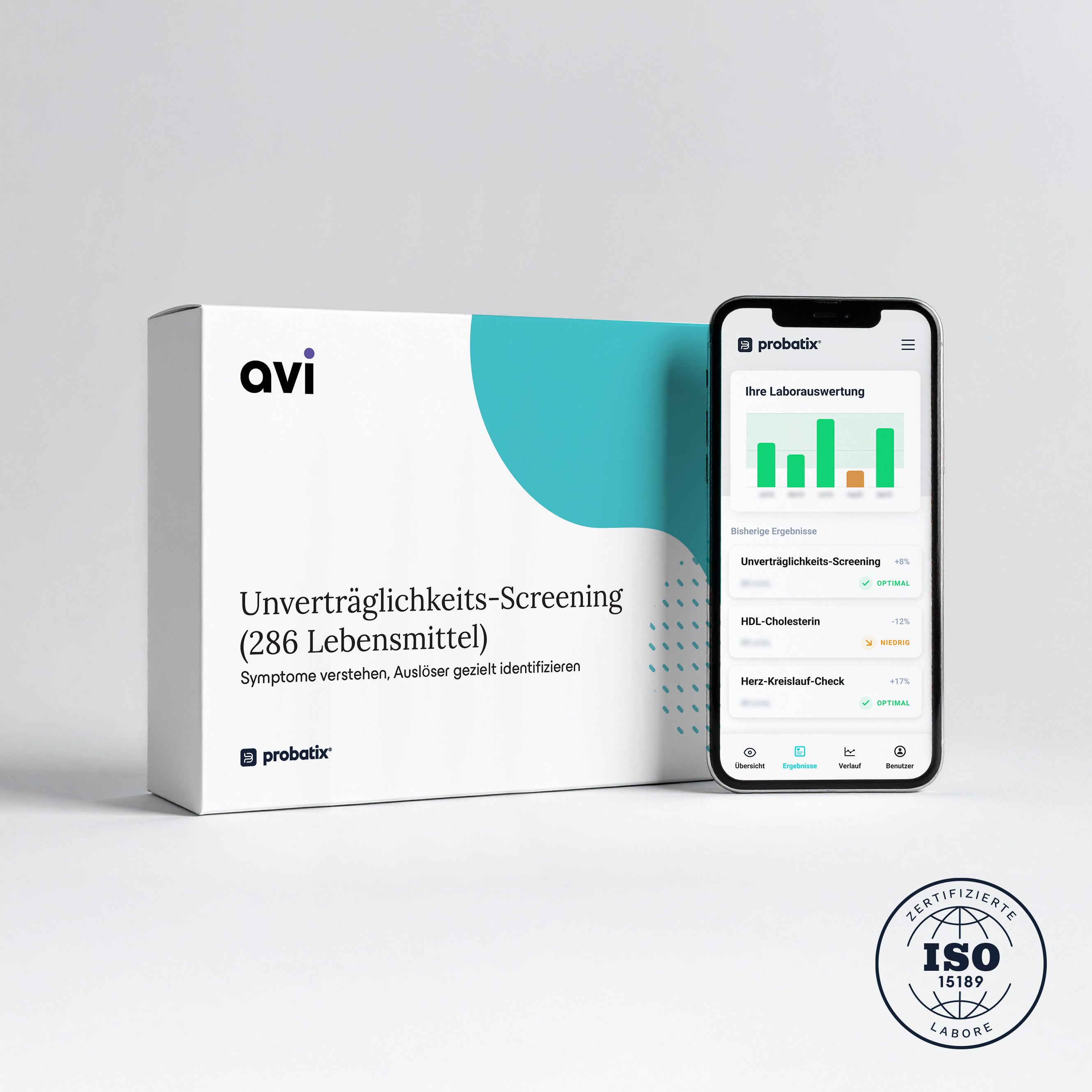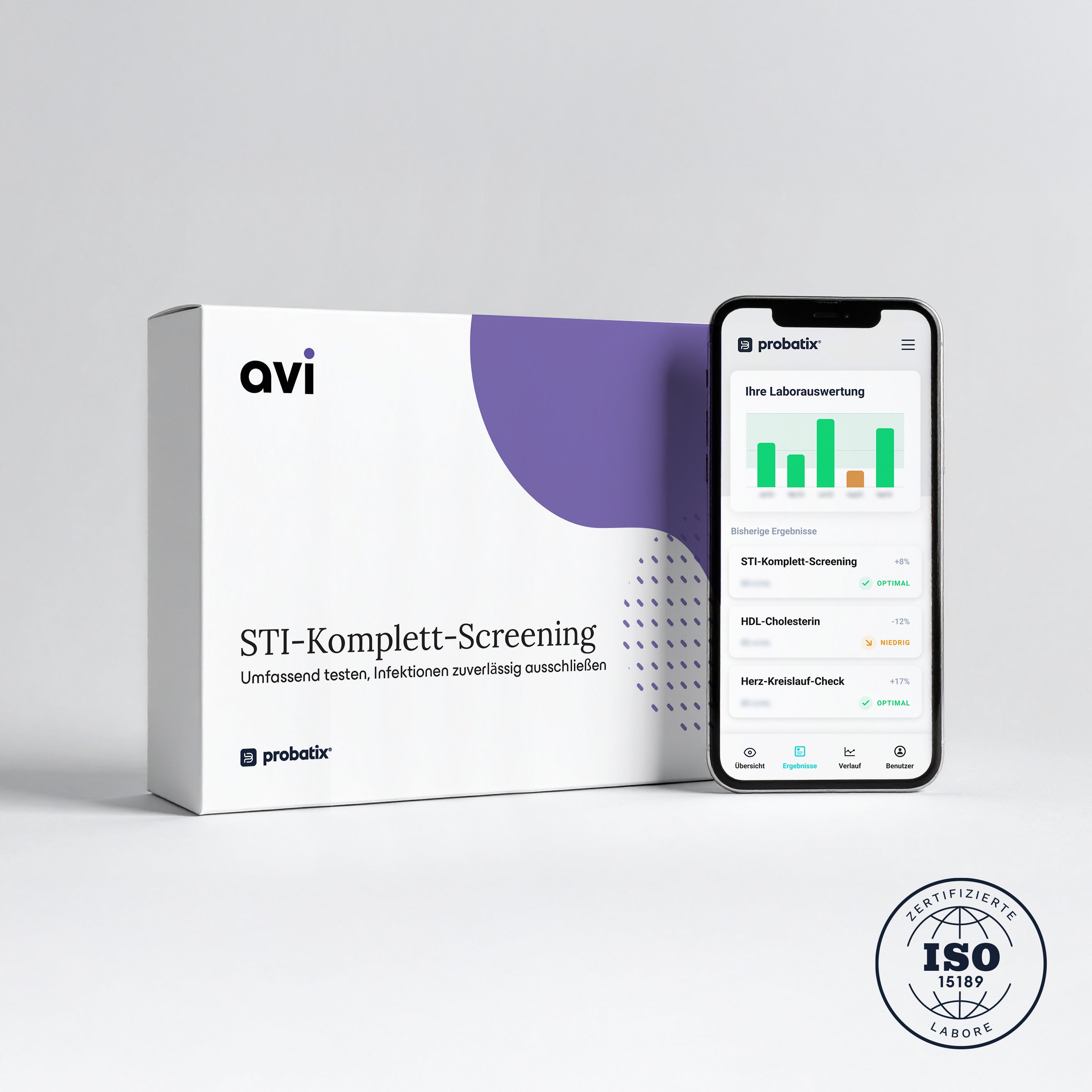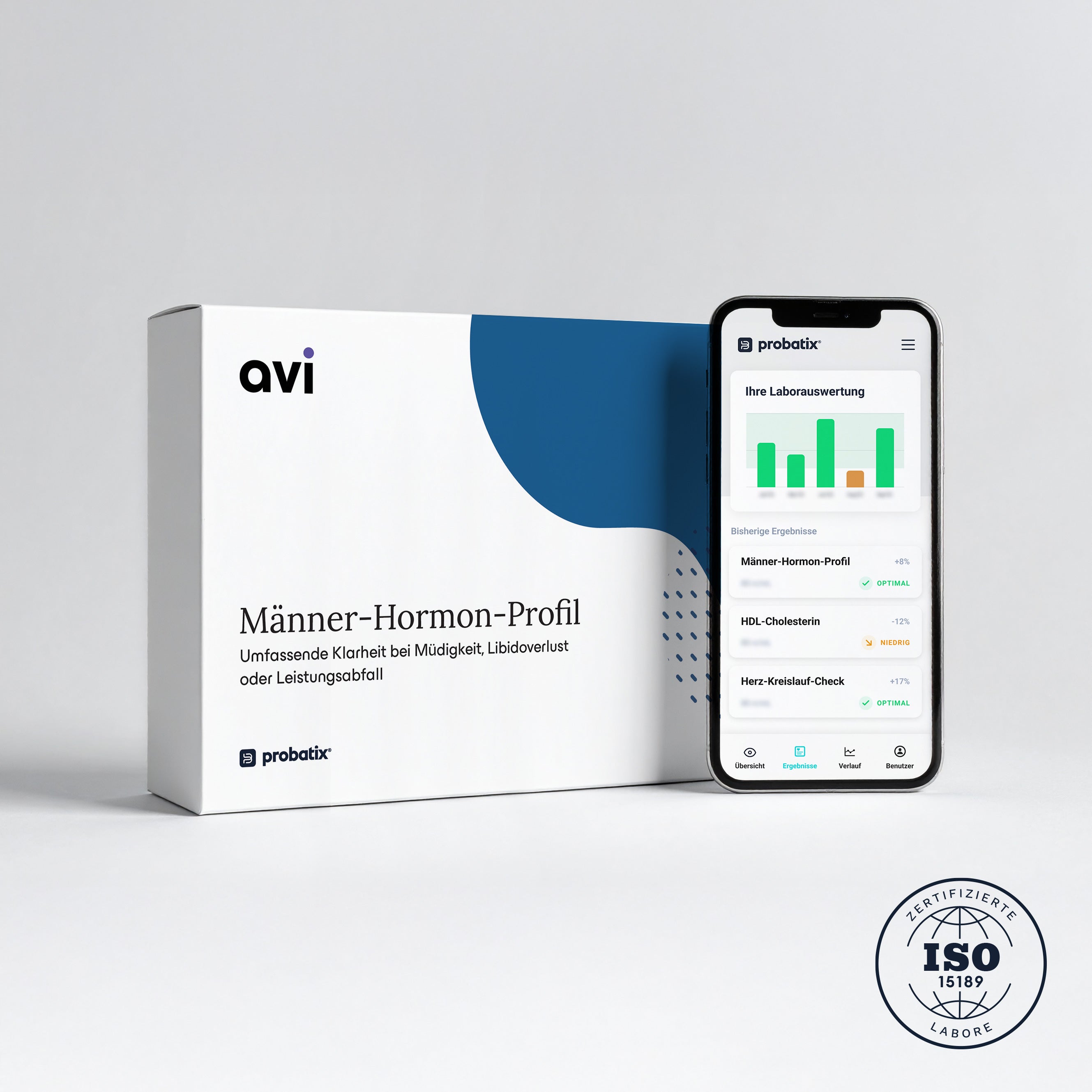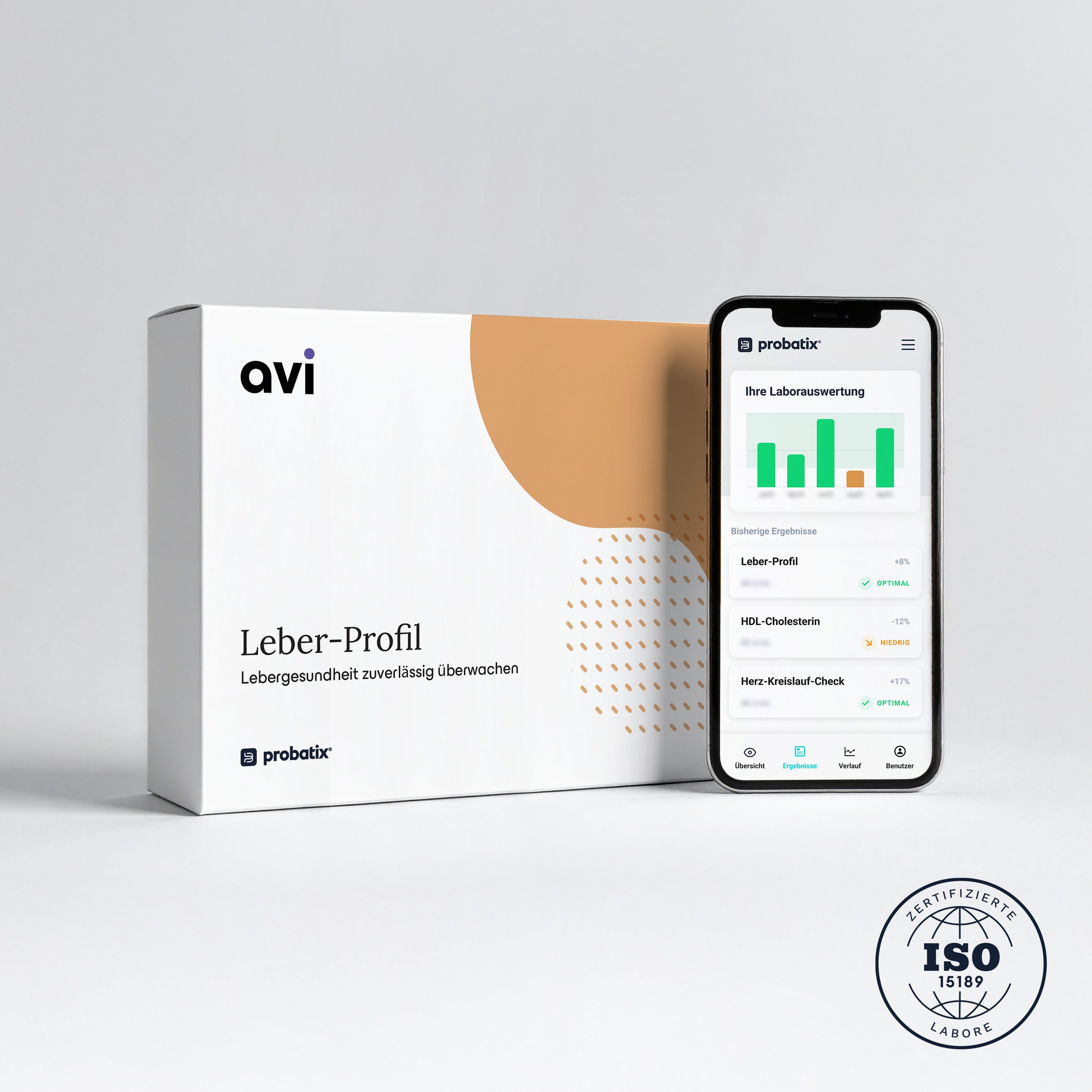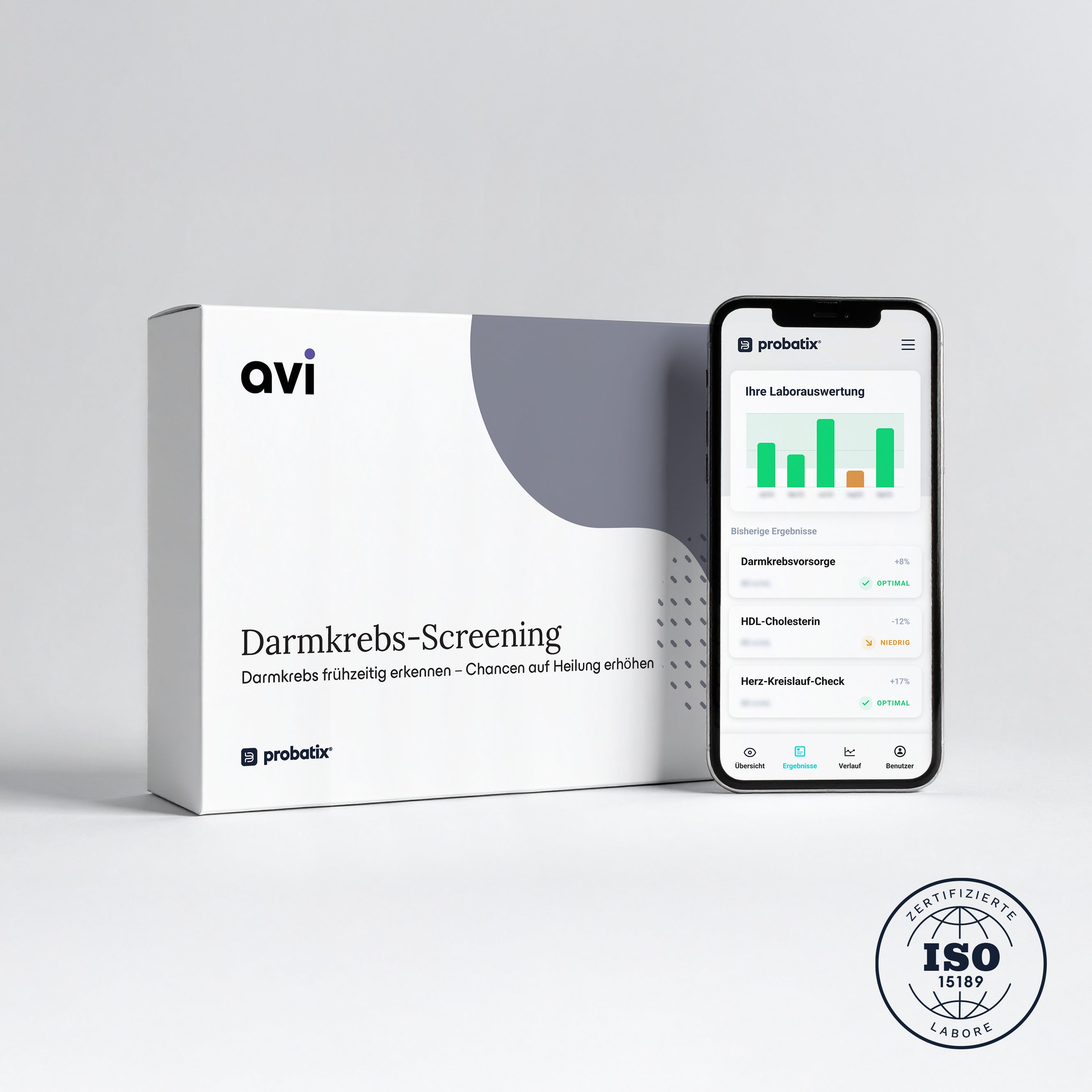Ovarian Reserve Test (AMH) - avi
Ovarian Reserve Test (AMH) - avi
Ovarian reserve in focus – learn more about your fertility with the AMH test.
- Reliable insights: Measures the Anti-Müllerian Hormone (AMH) and shows how large your egg reserve currently is – a valuable guide for your family planning.
- Discreet & convenient: Blood sample easily taken at home, evaluated by a professional laboratory.
- Clear feedback: Your results are clearly prepared and compared with age-dependent normal ranges.
Good to know: With the AMH test, you receive important information about your ovarian reserve – a solid basis for decisions regarding your family planning.
Tip: The AMH test is also part of our comprehensive fertility analysis.
avi begleitet Sie – besprechen Sie anschließend Ihre Ergebnisse einfach per Video mit Ihrer Ärztin oder Ihrem Arzt.
➡️ Buchen Sie jetzt Ihren Termin bei aviIn stock
What values does this test measure?
What values does this test measure?
For more information on the values, please click here.
How does it work?
How does it work?
1. Take a sample with our test kit
2. Send the sample to the lab with the prepaid envelope
3. View results digitally after a few days
Why are the values reliable?
Why are the values reliable?
All tests offered by us are evaluated and validated in certified medical laboratories in Germany.
This is what the press says about our tests
Ovarian Reserve Test (AMH) - avi: All details about the test
What benefits does this test offer me?
What benefits does this test offer me?
Understand Your Fertility – with the Ovarian Reserve Test (AMH), you gain valuable insights into your egg reserve.
The number of eggs a woman has available throughout her life is limited from birth and decreases with age. The Ovarian Reserve Test measures the level of Anti-Müllerian Hormone (AMH) in your blood. This laboratory value is considered one of the most reliable markers for assessing the current egg reserve. A higher value generally indicates a larger reserve, while lower values may indicate a reduced reserve.
Why is this test so important?
Many women want to consciously plan their family – whether it's an imminent pregnancy, social freezing, or starting a family later. An early understanding of one's own ovarian reserve provides clarity and enables more targeted decision-making.This is how you gain valuable time and flexibility.
Your benefits at a glance:
- Scientifically based: AMH is an established marker regularly used by fertility clinics.
- Practical and discreet: Sample collection conveniently from home, analysis in a certified specialist laboratory.
- Clearly prepared: Your report not only contains the measured values but also an assessment compared to age-dependent normal ranges.
- Guidance for the future: A useful component to discuss further steps with your doctor.
Good to know: The AMH test is an important indicator of ovarian reserve but does not replace comprehensive medical advice. Factors such as age, lifestyle, or pre-existing conditions also play a role.Use the result as a basis for making informed decisions about your family planning.
What do the measured values mean?
What do the measured values mean?
The anti-Müllerian hormone (AMH) is produced in the testes in men and in the ovaries in women. In male embryos, it ensures that the Müllerian ducts regress, while female embryos have only very low AMH levels, allowing the uterus and fallopian tubes to develop.
In women of reproductive age, the AMH level serves as a measure of the so-called ovarian reserve – a high value means that many eggs are still present; with increasing age, the level decreases and falls to zero with menopause. AMH measurements are primarily used in fertility treatments to estimate the number of available eggs and to plan hormone dosing. The test is also used to detect premature transition to menopause and to diagnose polycystic ovary syndrome or certain ovarian tumors.
Why is this test important?
Why is this test important?
The Ovarian Reserve Test (AMH) measures the Anti-Müllerian Hormone and provides important information about the egg reserve. It is a central marker for female fertility and supports planning around the desire to have children.
- Determination of egg reserve in the ovaries
- Assessment of individual fertility
- Assistance with family planning
- Early indication of a possible decline in ovarian function
- Support in decisions regarding fertility treatments
Note: The AMH level decreases with age and can be elevated in certain hormonal conditions, such as PCOS. It is an important component but should always be considered in conjunction with other findings.
When should I take this test?
When should I take this test?
An ovarian reserve test (AMH) can be useful in the following situations:
- When considering family planning
- If there are difficulties in becoming pregnant
- Before a fertility treatment
- If polycystic ovary syndrome (PCOS) is suspected
- For a general assessment of fertility
Consult a doctor to properly interpret the results and plan appropriate next steps.
What is included in the test kit?
What is included in the test kit?
Where can I find the instructions?
Where can I find the instructions?
Bei Fragen hilft Ihnen auch immer gerne unser wunderbarer Support weiter: support@probatix.de
FAQ - More Frequently Asked Questions about the Test
FAQ - More Frequently Asked Questions about the Test
1. What does the Ovarian Reserve Test (AMH) measure?
The test measures the level of Anti-Müllerian Hormone, which provides information about the egg reserve and is therefore an important indicator of female fertility.
2. Who is the test suitable for?
It is suitable for women who want to check their fertility – whether for family planning or to investigate unfulfilled desire for children.
3. How does the test work?
The determination is made via a blood sample, which can also be conveniently taken at home. The sample is then analyzed in the laboratory.
4. What does the AMH level indicate about fertility?
A high level indicates a good egg reserve, while a low level may suggest reduced fertility. However, the AMH level is only one component and should always be interpreted in conjunction with other findings.
5.How long does it take for the results to be available?
The results are usually available after a few days and can be viewed digitally.
6. Can the test also be used during menopause?
Yes, since the AMH level decreases with age and especially during menopause, it can also provide indications of the onset of this phase of life.
7. Is the test also useful when planning fertility treatment?
Yes, it is often used before fertility treatment to assess the chances of success and to plan the therapy in the best possible way.
Das sagen unsere Kunden
Your benefits for your health
Test with minimal effort
Understanding your own health
Recognize changes early





